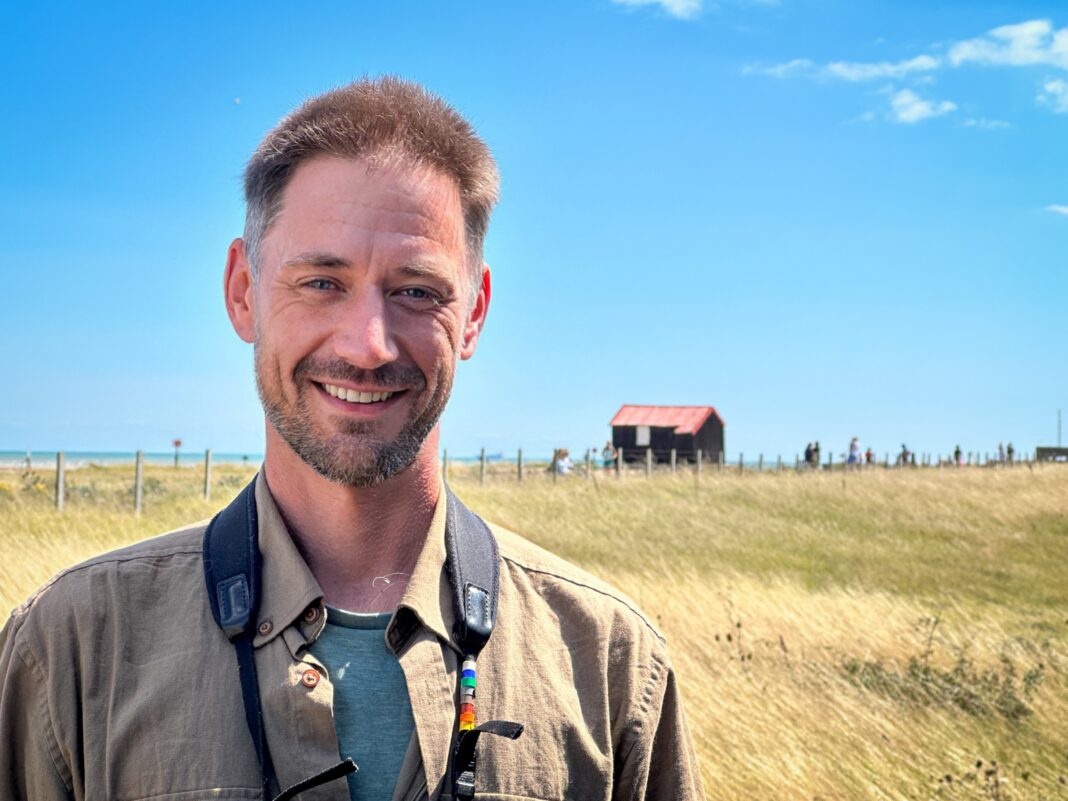Sussex Wildlife Trust is delighted to announce the appointment of Dr Paul Tinsley-Marshall as new site manager for Rye Harbour Nature Reserve.
Prior to joining us, Paul worked for Bedfordshire, Cambridgeshire and Northamptonshire Wildlife Trust on the Great Fen, one of Europe’s largest wetland restoration projects. He then spent some time as an ecological consultant, before taking up a position for Kent Wildlife Trust as their conservation evidence manager. Most recently, he was employed at Butterfly Conservation as regional conservation manager for South East England.
Paul comes to the role with a wealth of experience that will be key to the success of maintaining Rye Harbour Nature Reserve as one of the largest, and most important, wildlife sites in England.
His role will include overseeing the ranger team, delivering practical work on the ground, creating a site management plan and working closely with the trust’s senior ecologist to monitor and assess the effectiveness of their work. He will also be involved in developing new conservation projects, managing contractors, developing education and engagement activities and working with the head of nature reserves and others to contribute to wider strategic planning in relation to Rye Harbour Nature Reserve, such as restoring wildlife at the landscape-scale, climate resilience and adaptation.
Dr Paul Tinsley-Marshall said:
“I’m delighted to be joining Sussex Wildlife Trust and taking responsibility for the richly biodiverse site of Rye Harbour Nature Reserve. I’m really looking forward to getting to know the reserve and the people associated with it. As well as continuing to manage the site effectively, I feel there are many opportunities to improve its value for wildlife and people. I’m excited to be living and working on a site that had already captivated me. It’s a recipe for a dream job and I am over the moon to be here.”
Chris Corrigan, Interim CEO for Sussex Wildlife Trust said:
“At a time when we are facing a local and global biodiversity crisis, it is more important than ever that we can play our part by making Sussex a better place for nature. Paul’s role will ensure we are protecting a really important site that is home to over 4,000 species of plants and animals, including 300 that are rare or endangered.”
Image Credits: Sussex Wildlife Trust .




Congratulations on your new position. I hope that you will seriously look at the abundance of dogs off leads to protect birds, people and other pets. My son was born at Rye Harbour however I now avoid the lovely walk to the sea due to uncontrolled dogs to say nothing of some owners not picking up dog poo.
Good luck.
I fully agree with Belinda and feel that the reserve is geared more to dog owners needs than the wellbeing of animals, birds, plants, insects and nature lovers. Hoping that a new broom will sweep clean…
As a dog owner myself I fully agree that the amount of dog faeces left by some owners is totally unacceptable. When visiting with children, constant vigilance is required in order to avoid direct contact with this dangerous and highly offensive waste.
In all honesty the reserve staff are probably unable to control the thoughtless, inconsiderate dog owners who do not share the agenda of others and therefore fail to observe when or where their dog defecates. Anyway, it is my understanding it is not owned by the reserve but the Environment Agency.
Two issues which are a concern of mine, and apparently up to now completely disregarded by the East Sussex Wildlife trust and the Nature Reserve are:
1) The continued use by the volunteer groups and other staff of the smelly, noisy polluting diesel jeep cruising around the site like VIPs (which they are not!)
2) The parking of coaches and mini-vans in Rye Harbour village whilst waiting for the return of their passengers. If the reserve want to continue to encourage coach parties of school children or others via social media, it is not unreasonable to expect the reserve to make provision for their parking on the reserve, rather than wiping their hands of the responsibility by creating dangerous situations for the village residents to negotiate. Please plan strategically for all.
I understand the issues with dog faeces and dogs not on leads but the real problem for me is the Harbour road that is in a very bad condition to say the least, having lived in Rye Harbour a few years ago I have to say I have never seen the road as bad as it is now.